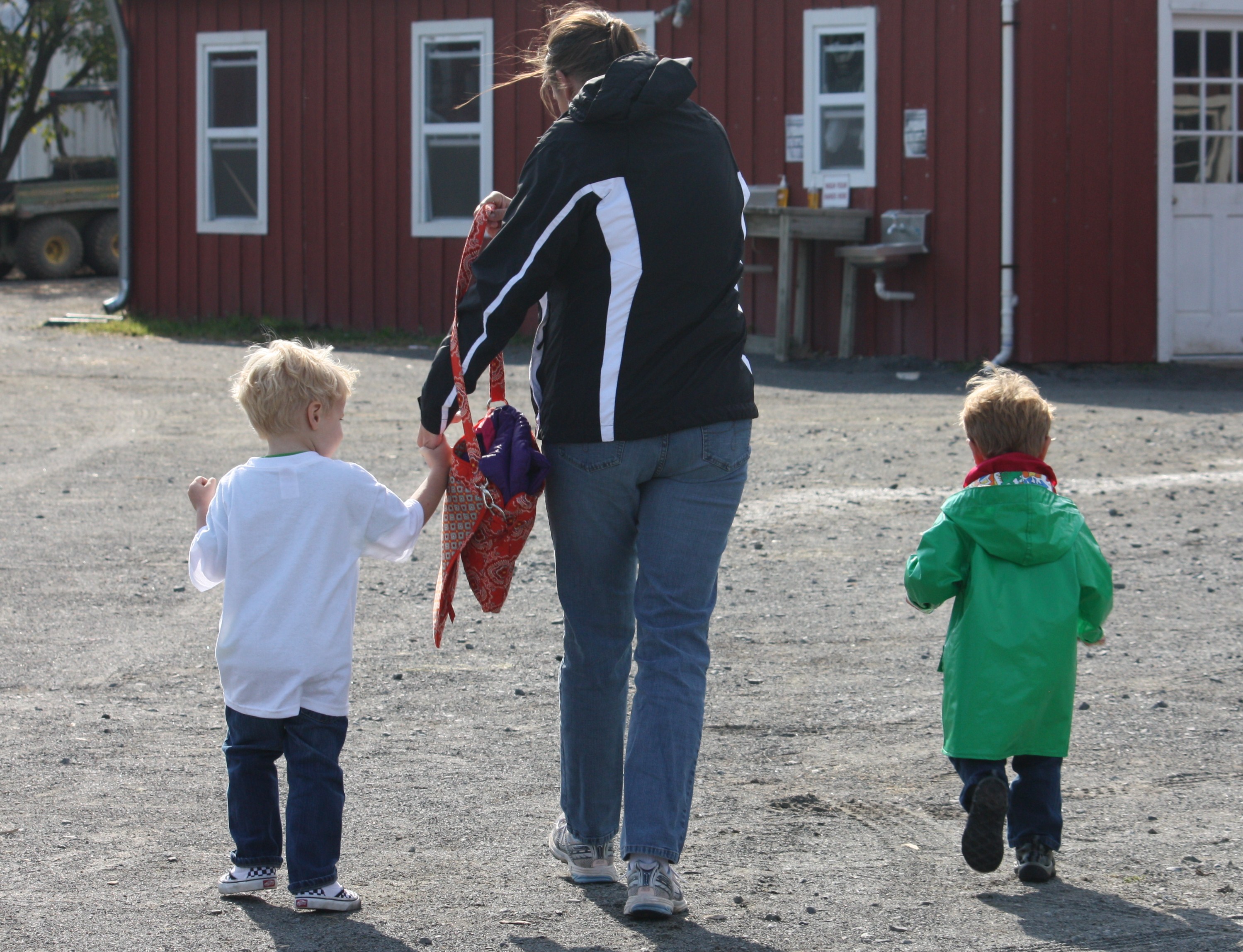With a few weeks of school under our belts, hopefully everyone is settling nicely into the preschool routine. However, separation anxiety can crop up any time there is a change in routine. In this “FROM THE TEACHERS” post, our amazing teachers give us some strategies to help ease separation, for both you and your child.
 Now that school has started, you and your child are becoming familiar with all the new routines. To aid your child in their transition, please try and follow the same routine when you say goodbye. A good-bye routine builds structure and enables your child to quickly gain an understanding that although you are leaving, you will come back.
Now that school has started, you and your child are becoming familiar with all the new routines. To aid your child in their transition, please try and follow the same routine when you say goodbye. A good-bye routine builds structure and enables your child to quickly gain an understanding that although you are leaving, you will come back.
Your drop off routine may go something like this:
Hang up your bag,
Give a kiss/hug,
Tell them, specifically, when you will see them again: “I will see you after the Activity Room” or “I will see you after Story Time.”
Sometimes it is hard to leave your child because they are hanging on to your leg and crying. One of the hardest things we as parents have to do is walk away when our child is crying. Although it can be difficult, please smile and say in your most calm, reassuring voice: “I have to go now. You are going to have a great day at school with Mrs._______and your friends. I will see you after _________.” Then, it is your job to hand them over to the teacher and walk away.
Although we do not like focusing on what not to do, separation it can be tricky. Saying goodbye and then coming back in the room because you hear crying sends your child a mixed message. They might get the message that school isn’t safe or that their teacher can’t be trusted to calm them down. On the other hand, sneaking out doesn’t give your child closure. Please also refrain from comparing them to other children or putting ideas into their heads: “Marie never cries when her mom leaves” or “Don’t make a scene.”
In our experience, most children will calm down after a few minutes. Some children can be redirected with a toy, an activity, or a book. Others might need their lovey (a blanket, stuffed animal, etc.) to calm them down. Some might just need to be alone for a few minutes to calm down and realize they are okay. You are always welcome to call Mrs. Sloane or Mrs. Essig to see if they’ve calmed down or to ask how their day is going.
Remember, all of us (teachers & staff) are mothers and have been teaching for a long time. We promise to give TLC to all the children, especially the ones who are crying. Another benefit of being at ACPS is you get to stay every now and then and co-op!
Changes in routine can cause some children to behave differently. On co-oping days your child might act differently or have a hard time. This is not unusual. It is also extremely important to communicate with us when your child has had a tough morning or if something is different at home, e.g., woke up early, no nap the day before, Dad’s away, Grandma is visiting, etc. Often children regress after winter break or if you’ve traveled. Little things to us are BIG things to children and affect them in different ways. If you feel that drop-off is still difficult for your child after a few weeks, please email/call the teacher so that we may work through it together.
What about when you school aide? Your drop off routine may not vary much. However, you might prepare your child by explaining that you will be helping Mrs. Essig & Mrs. Sloane with some things around the school such as opening the playground, taking out the trash, and vacuuming. Let them know they will probably see you during the day and that you may be able to say hi and give a kiss/hug, but that you have a job to do. Explain that you might have time to eat snack with your child and their friends, but that you will have to get back to work after snack. Always remember to tell them that you will see them after their last activity of the day.
If you remember anything about separation, remember this: Tell them what you are going to do and follow through. Be honest with your children. This carries over into many aspects of their day and lives.

